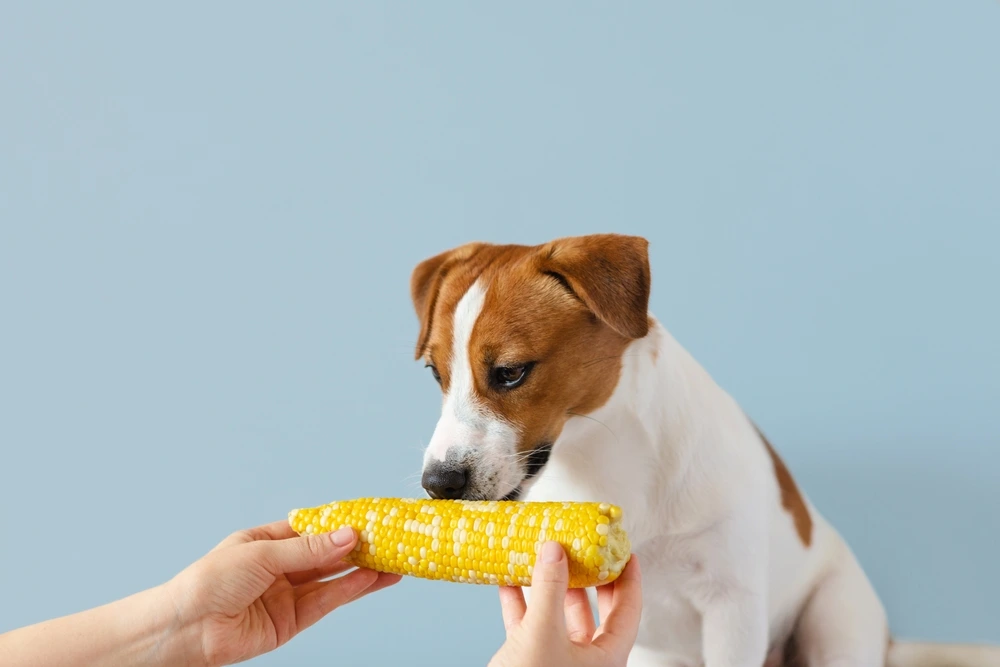Bananas are one of the most popular fruits worldwide, loved for their sweet taste, portability, and rich nutrients. As dog owners, it’s natural to wonder: can dogs have bananas safely? Are they just a tasty treat, or could they pose risks to your furry friend? In this article, we’ll break down everything you need to know about feeding bananas to dogs, including their benefits, potential risks, safe serving tips, and even real-life experiences from dog owners.

Content
Are Bananas Safe for Dogs?
The short answer is yes—dogs and bananas generally mix well. Bananas are non-toxic and provide several health benefits when given in moderation. That said, every dog is unique, so monitoring your pet for any signs of intolerance is essential, especially if you’re introducing bananas for the first time.
Puppies, in particular, can also enjoy this fruit, but serving sizes should be smaller due to their developing digestive systems. Can puppies eat bananas? Yes, but always in tiny, mashed portions to avoid digestive upset.
Nutritional Content of Bananas
Bananas are packed with essential nutrients that can benefit your dog’s health. Each banana contains:
- Potassium: Supports heart and muscle function.
- Vitamin B6: Aids in brain function and red blood cell production.
- Vitamin C: Boosts immunity and promotes healthy skin.
- Fiber: Helps regulate digestion.
- Magnesium: Supports bone and muscle health.
For dog owners searching for banana nutrition for dogs, these nutrients make bananas a surprisingly healthy treat. Unlike processed snacks, bananas are all-natural, low in fat, and easy to digest when given appropriately.
Benefits of Feeding Bananas to Dogs
Feeding bananas to your dog occasionally can provide several advantages:
- Digestive Support: The fiber content in bananas can help regulate bowel movements and prevent constipation.
- Energy Boost: Bananas provide natural sugars that can energize active dogs without resorting to unhealthy treats.
- Heart Health: Potassium and magnesium contribute to healthy heart and muscle function.
- Mental Stimulation: Using small banana pieces as rewards can make training sessions more engaging.
For dog owners exploring dog-friendly fruits, bananas are a safe and nutritious choice.
How Much Banana Can a Dog Eat?
While bananas are healthy, moderation is key. Overfeeding can lead to weight gain or digestive upset due to the fruit’s natural sugar content. Here’s a simple guide:
- Small dogs (under 15 lbs): 1–2 small slices per day
- Medium dogs (15–50 lbs): 2–4 slices per day
- Large dogs (50+ lbs): Up to half a banana per day
Always introduce bananas slowly, especially for feeding bananas to dogs for the first time, and monitor for any signs of discomfort such as diarrhea or gas.
Risks of Feeding Bananas to Dogs
While generally safe, bananas do carry some potential risks:
- High Sugar Content: Excessive consumption can contribute to weight gain or exacerbate diabetes in dogs.
- Digestive Upset: Too much fiber can cause diarrhea or stomach discomfort.
- Allergic Reactions: Rarely, dogs may develop allergies to bananas, showing signs like itching or vomiting.
Side effects of bananas for dogs are uncommon but worth noting to prevent health issues.
Can Dogs Eat Banana Peels?

A common question among dog owners is whether banana peel safety for dogs is okay. The answer is mostly no. Banana peels are tough, fibrous, and difficult for dogs to digest. Eating peels can cause intestinal blockage or discomfort, so it’s best to stick with the soft, inner fruit.
Fresh vs. cooked banana for dogs: Fresh banana is ideal. Cooked or baked banana (without added sugar or chocolate) is also safe in moderation.
Tips for Serving Bananas to Dogs Safely
Here are some practical ways to include bananas in your dog’s diet:
- Sliced or Mashed: Easy to eat and control portion sizes.
- Frozen Banana Pieces: Perfect for hot days as a cooling treat.
- Mixed with Dog-Friendly Foods: Add small pieces to plain yogurt or oatmeal.
- Training Treats: Use small banana bits as positive reinforcement during training sessions.
By using these tips, dogs can enjoy the health benefits without overindulging. Healthy treats for dogs like bananas can be a safe, low-fat alternative to store-bought snacks.
Real-Life Case Study: Max the Labrador
Max, a 4-year-old Labrador Retriever, used to have digestive issues whenever he ate commercial dog treats. His owner, Sarah, decided to introduce bananas for dogs into his diet. She started by giving Max one small slice a day after dinner.
Within two weeks, Max showed noticeable improvements:
- Regular bowel movements
- Increased energy during walks
- Reduced cravings for unhealthy treats
Sarah noted that moderation was crucial—any more than one slice a day caused slight stomach upset. Today, Max enjoys bananas a few times a week as part of his training routine, proving that with proper guidance, dogs can safely enjoy this fruit.
Conclusion: Can Dogs Have Bananas?
So, can dogs have bananas? Absolutely—when served in moderation, bananas are a safe, nutritious, and delicious treat for most dogs. They provide essential nutrients, support digestion, and can even be used as training rewards. The key is portion control and observing your dog’s response, especially if they’re a puppy or have a sensitive stomach.
Remember, bananas are just one of many dog-friendly fruits you can include in a healthy treat rotation. By incorporating them thoughtfully, you can give your dog a tasty snack that supports their overall health and happiness.
Learn more about caring for a Small Golden Retriever and their dietary needs.
FAQs
Are any fruits toxic to dogs?
Yes. Grapes, raisins, cherries, and certain citrus fruits can be harmful. Always research before offering new fruits.
What is the healthiest fruit for dogs?
Blueberries, apples (without seeds), and bananas are among the healthiest due to vitamins, antioxidants, and fiber.
Do bananas help a dog’s upset stomach?
Yes, bananas’ fiber content can help regulate digestion and ease mild stomach upset when given in moderation.

Join Felipe Clark on a heartwarming journey through the world of pet adoption. He’s a true advocate for shelter animals, sharing stories that tug at the heartstrings and inspire adoption.
















